#Gujarat Election Result
Text
AAP के एक और 3 निर्दलीय MLA भाजपा को समर्थन देंगे, चुनाव से पहले छोड़ी थी पार्टी | Gujarat Election Defection Deals; AAP MLA Bhupat Bhayani | Gujarat News
AAP के एक और 3 निर्दलीय MLA भाजपा को समर्थन देंगे, चुनाव से पहले छोड़ी थी पार्टी | Gujarat Election Defection Deals; AAP MLA Bhupat Bhayani | Gujarat News
जूनागढ़2 दिन पहले
गुजरात में भाजपा की रिकॉर्ड जीत के बाद राज्य में अब दलबदल का खेल शुरू हो गया है। आम आदमी पार्टी (AAP) के एक और तीन निर्दलीय विधायकों ने भाजपा को समर्थन देने का ऐलान कर दिया है। हालांकि उन्होंने पार्टी में शामिल होने से इनकार किया है। चार में से तीन पहले भाजपा में ही थे।
AAP विधायक भूपत भयाणी पहली बार जूनागढ़ जिले की विसावदर सीट से जीतकर विधानसभा पहुंचे हैं। वे पहले भाजपा में भी…
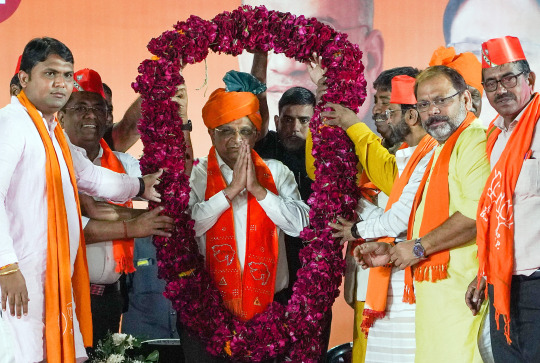
View On WordPress
#AAP#AAP MLA Bhupat Bhayani#AAP MLA Bhupat Bhayani BJP#Bhupat Bhayani#BJP#Gujarat Election#Gujarat Election 2022#Gujarat Election Result#Politics#Visavadar MLA
0 notes
Text
Gujrat Election Result: राम मंदिर, बुलडोजर और यूपी मॉडल... गुजरात में योगी का जलवा, इन हारी सीटों पर दिला दी जीत
Gujrat Election Result: राम मंदिर, बुलडोजर और यूपी मॉडल… गुजरात में योगी का जलवा, इन हारी सीटों पर दिला दी जीत
लखनऊ: उत्तर प्रदेश के मुख्यमंत्री योगी आदित्यनाथ का जलवा गुजरात के चुनावी मैदान में दिखा है। सीएम योगी गुजरात के चुनावी मैदान में उतरे और अपना प्रभाव छोड़ा। गुजरात चुनाव को लेकर सीएम योगी को भाजपा ने स्टार प्रचारक बनाया था। वे तमाम उम्मीदवारों की वे पसंद बन गए थे। सीएम योगी ने एक दिन में तीन-तीन जनसभाओं को संबोधित किया। अपने भाषणों और उत्तर प्रदेश के किए गए कार्यों के आधार पर जनता के बीच प्रभाव…
View On WordPress
#gujarat election#gujarat election result#gujarat election result 2022#Gujarat Election Yogi Adityanath#Latest Metro News#Metro Headlines#Metro News#Metro News in Hindi#yogi adityanath gujarat election result#yogi adityanath news#Yogi Adityanath success in gujarat election#Yogi aditynath#गुजरात चुनाव परिणाम 2022#मेट्रो Samachar#योगी आदित्यनाथ गुजरात चुनाव रिजल्ट
0 notes
Text
हार्दिक पटेल और अल्पेश ठकोर... जानें गुजरात चुनाव में कांग्रेस के कितने टर्नकोट को बीजेपी दे सकती है टिकट
हार्दिक पटेल और अल्पेश ठकोर… जानें गुजरात चुनाव में कांग्रेस के कितने टर्नकोट को बीजेपी दे सकती है टिकट
हाइलाइट्स
गुजरात विधानसभा चुनाव में बीजेपी की लिस्ट का इंतजार
बीजेपी की लिस्ट में 35-40 पूर्व कांग्रेसियों के नाम
बीजेपी कोर कैडर को संतुष्ट रखना भी बड़ी चुनौति
हार्दिक पटेल और अल्पेश ठकोर का नाम पूर्व कांग्रेसियों की लिस्ट में सबसे ऊपर
अहमदाबाद: पाटीदार आरक्षण आंदोलन का नेतृत्व कर लाइमलाइट में आए हार्दिक पटेल को बीजेपी टिकट दे सकती है। गुजरात कांग्रेस के कार्यकारी अध्यक्ष रहे हार्दिक (29) को…
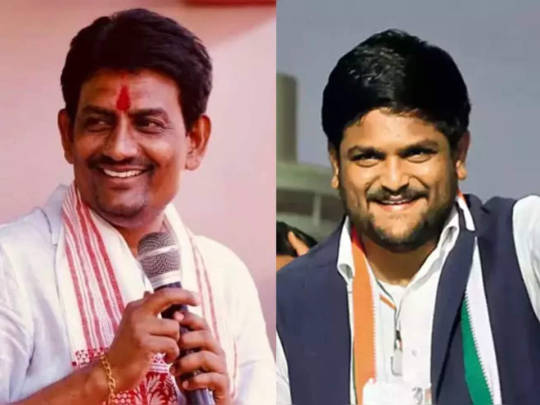
View On WordPress
#bjp candidate list Gujarat#Gujarat bjp candidate list#Gujarat bjp list#gujarat election date#gujarat election date 2022#gujarat election result#Gujarat news#hardik patel aap#hardik patel cricket#hardik patel mla#Latest news News#news Headlines#news News#news News in Hindi
0 notes
Text
Bhupendra Patel, takes oath as 18th Chief Minister of Gujrat
Bhupendra Patel, takes oath as 18th Chief Minister of Gujrat #AmitShah #Bjp #chiefminister #Congress #DelhiPolice
Bhupendra Patel – 18th CM of Gujarat
On December 12, BJP leader Bhupendra Patel has been sworn in as the 18th chief minister of Gujarat by Governor Acharya Devvrat along with . A grand swearing-in ceremony held at Gandhinagar, attended by Prime Minister Narendra Modi, Home Minister Amit Shah, Defence Minister Rajnath Singh, BJP President JP Nadda, UP CM Adityanath Yogi and other ministers of the…

View On WordPress
#Amit Shah#Bjp#chief minister#Congress#Delhi Police#democracy#Election Results#Elections2022#government#Gujarat#INC#Narendra Modi#politics
0 notes
Text
Gujarat election result Live 2022: BJP's biggest victory in Gujarat
Gujarat election result Live 2022: BJP’s biggest victory in Gujarat
Gujarat election result: Gujarat Assembly Election 2022 Results, Chunav Parinam Gujarat Live: Counting of votes is going on for the elections held on 182 assembly seats in Gujarat. While the BJP has gone ahead of the majority in the initial trends, the condition of the Congress and the Aam Aadmi Party is bad. Compared to 2017, this time there was less voting in both the phases. In the first…
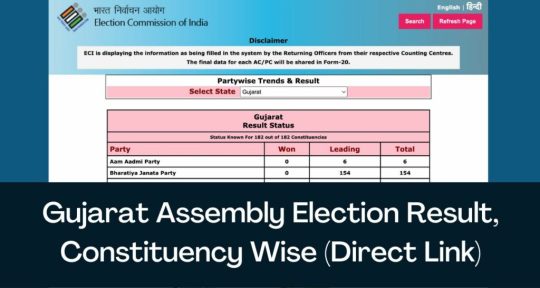
View On WordPress
0 notes
Text
Salman Khan's brother-in-law congratulated his father for winning the election..., said- Congratulations dad!
Salman Khan’s brother-in-law congratulated his father for winning the election…, said- Congratulations dad!
New Delhi. After the results of the Himachal Pradesh assembly elections, there is happiness in Bollywood actor Aayush Sharma’s house too. Ayush’s father Anil Sharma has won from the Mandi assembly seat in Himachal. Bharatiya Janata Party candidate Anil Sharma defeated Congress candidate Champa Thakur by more than 10,000 votes from Mandi seat. While congratulating on his father’s election victory…
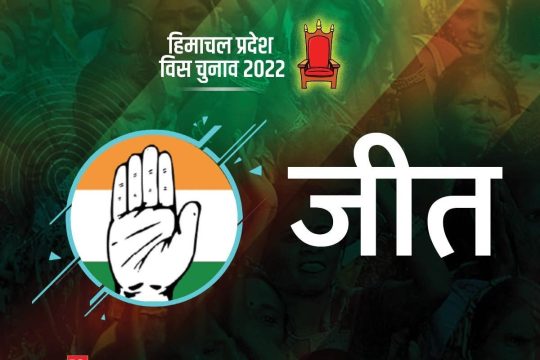
View On WordPress
#assembly election result 2022#Ayush Sharma#Ayush Sharma Father Won Election#Ayush Sharma Video#brotherinlaw#congratulated#Congratulations#congress government himachal#dad#election..#father#gujarat election 2022 result#Himachal election result 2022#Himachal Pradesh Election Result 2022#Khans#Mandi Election Result#mandi hindi news today#Salim Khan#Salim Khan&039;s Memorial Election Jeete#Salman#Salman Khan#Salman Khan&039;s brother-in-law#winning
0 notes
Text
हर्ष संघवी को गृह, ऋषिकेश पटेल को स्वास्थ्य; PM मोदी जनता के आगे नतमस्तक हुए | Gujarat CM Oath Ceremony LIVE Update; Bhupendrabhai Patel Cabinet Minister List Narendra Modi | Amit Shah JP Nadda Rajnath Singh
हर्ष संघवी को गृह, ऋषिकेश पटेल को स्वास्थ्य; PM मोदी जनता के आगे नतमस्तक हुए | Gujarat CM Oath Ceremony LIVE Update; Bhupendrabhai Patel Cabinet Minister List Narendra Modi | Amit Shah JP Nadda Rajnath Singh
Hindi News
National
Gujarat CM Oath Ceremony LIVE Update; Bhupendrabhai Patel Cabinet Minister List Narendra Modi | Amit Shah JP Nadda Rajnath Singh
गांधीनगर21 घंटे पहले
62 साल के भूपेंद्र पटेल ने सोमवार को गुजरात के 18वें मुख्यमंत्री की शपथ ली। गांधीनगर सचिवालय के हेलीपैड ग्राउंड में राज्यपाल ने दोपहर 2 बजे उन्हें पद की शपथ दिलाई। भूपेंद्र पटेल के बाद 16 मंत्रियों ने भी शपथ ली। इनमें आठ…

View On WordPress
#Amit Shah#Bhupendra Patel#Bhupendrabhai Cabinet Minister List#Bhupendrabhai Patel#Bhupendrabhai Patel Oath Ceremony#Gujarat Cm Oath Ceremony#Gujarat CM Oath Ceremony Live#Gujarat CM Oath Ceremony Update#Gujarat Election Result#Gujarat Election Result 2022#JP Nadda#Narendra Modi#Rajnath Singh
0 notes
Text
Gujarat Election Result: गुजरात निकालावर राहुल गांधींची प्रतिक्रिया, म्हणाले परिश्रम करू व लढत राहू
Gujarat Election Result: गुजरात निकालावर राहुल गांधींची प्रतिक्रिया, म्हणाले परिश्रम करू व लढत राहू
Gujarat Election Result: गुजरात निकालावर राहुल गांधींची प्रतिक्रिया, म्हणाले परिश्रम करू व लढत राहू
Rahul Gandhi on Gujarat election Result : गुजरात निवडणूक निकालानंतर काँग्रेसचे नेते राहुल गांधी यांनी प्रतिक्रिया दिली आहे की, गुजराती जनतेच्या जनादेशाचा आम्ही स्वीकार करतो. यापुढेही कठोर परिश्रम करू व लढत राहू.
Rahul Gandhi on Gujarat election Result : गुजरात निवडणूक निकालानंतर काँग्रेसचे नेते…
View On WordPress
#Election#gujarat#result:#अपडेट न्यूज#आजची बातमी#आताची बातमी#ऑनलाईन बातम्या#करू#गांधींची#गुजरात#ठळक बातम्या#ताज्या घडामोडी#निकालावर#न्यूज फ्लॅश#परिश्रम#प्रतिक्रिया#बातम्या#भारत लाईव्ह न्यूज मीडिया#मराठी बातम्या#मराठी समाचार#महाराष्ट्र#म्हणाले#राहुल#राहू”#लढत#लेटेस्ट बातमी#व
0 notes
Text
Gujarat Election Result 2022 : इतिहास की सबसे बड़ी जीत की ओर भाजपा
Gujarat Election Result 2022 : इतिहास की सबसे बड़ी जीत की ओर भाजपा
अहमदाबाद। Gujarat Election Result 2022 गुजरात विधानसभा चुनाव 2022 (Gujarat Vidhan Sabha Chunav 2022) के शुरुआती रुझानों में भारतीय जनता पार्टी (Bhartiya Janta Party) को रिकार्ड बहुमत मिला है। कांग्रेस का पिछली बार से भी खराब प्रदर्शन देखने को मिल रहा है। भाजपा 157, कांग्रेस 16, आम आदमी पार्टी 5 और अन्य 4 सीटों पर आगे चल रहे हैं।
Higher Education Thinking Camp : कार्यक्रम में CM धामी ने किया…
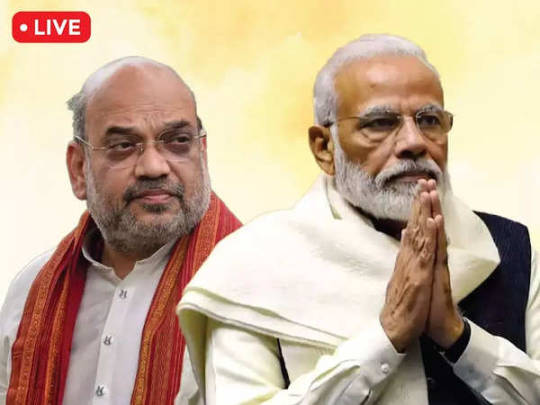
View On WordPress
0 notes
Text
India is in the middle of a 44-day exercise to elect its next government, with Prime Minister Narendra Modi tipped to return his Bharatiya Janata Party to power for a third consecutive term. Modi, who aims to win nearly three-quarters of the country’s 543 parliamentary seats, has surprised many observers by using dehumanizing anti-Muslim language on the campaign trail—rhetoric that is more direct than that of his past speeches.
So far, the BJP campaign has focused on creating an irrational fear among India’s Hindu majority that if Modi doesn’t return as prime minister, a share of their private wealth and affirmative action job quotas will be given to Indian Muslims. Modi and his party have doubled down on this narrative at a moment when reports suggest that their quest for a supermajority is unlikely to succeed. The brazen continuation of such anti-Muslim rhetoric differentiates this campaign from the two others that have put Modi in the prime minister’s office.
Hate speech is a criminal offense in India, and it is specifically barred during an election campaign. However, Modi chose the three leaders of India’s Election Commission, the agency charged with conducting free and fair polls, and it has ignored his flagrant violations of the election code. As a result, as the campaign continues through the end of May, so too will Modi’s anti-Muslim tirades. India is expected to announce its election results on June 4.
If the BJP wins and Modi is once again crowned prime minister, his Islamophobic rhetoric will not simply disappear. Many political leaders campaign in poetry and govern in prose, but hateful rhetoric has real-life consequences. Modi’s campaign speeches have put a target on Indian Muslims’ backs, redirecting the anger of poor and marginalized Hindu communities away from crony capitalists and the privileged upper castes. It underscores an attempt to make members of the Muslim minority second-class citizens in a de facto Hindu Rashtra, or state.
These social schisms need only a small spark to burst into communal violence, which would damage India’s global status and growth. Furthermore, Modi’s campaign rhetoric is matched by the BJP’s choice to not put up candidates in Muslim-majority Kashmir, reducing its stake in ensuring robust democracy in a region that New Delhi has ruled directly since 2019. His language will also have a direct bearing on India’s fraught ties with its neighbor Pakistan. Finally, the state-backed ill treatment will likely not be limited to Indian Muslims—meaning that other religious minorities, such as Christians and Sikhs, will also be affected.
Around 200 million Muslims live in India—the second-largest Muslim population in the world, after that of Indonesia. Few mainstream Indian political leaders have plummeted to such depths in castigating these citizens. Modi’s campaign rhetoric makes clear that if he is elected to a third consecutive term, the nation’s Muslims will stand politically disempowered, economically marginalized, and deprived of their constitutional rights.
Modi’s political rise came in the wake of significant violence against Muslims in Gujarat in 2002, when he was the state’s chief minister. Due to his role in the violence, the European Union, the United Kingdom, and the United States all temporarily barred his entry. Leading the party’s campaign to victory in the state assembly in the same year, his campaign speeches were full of crude language against Muslims. But the BJP’s electoral success in Gujarat—winning the next two assembly elections before the launch of Modi’s national campaign—ultimately gave Modi political credibility within an extreme fringe of the party.
By 2011, Modi had started reinventing himself as a business-friendly leader with an eye on a national role. By the time he became prime minister three years later, the narrative of a so-called Gujarat model of economic development concealed his anti-Muslim ideological moorings. Modi’s mask slipped occasionally, but he often spoke with a dog whistle. Mostly, the prime minister reiterated an imagination of India as a Hindu nation. In a post-9/11 world, Modi presented an alternative model of battling Islamic terrorism and consolidated a Hindu majoritarian voter base—delivering a stunning election victory in 2019 after an attempted airstrike against an alleged terrorist training camp inside Pakistan.
This year, Modi has not campaigned on his track record of the past decade or on the party manifesto for the next five years as often as he has attempted to further polarize Hindus and Muslims. In a speech given on April 21, Modi suggested that the opposition Indian National Congress party, if elected, would redistribute property to Muslims. The party would “calculate the gold with [Hindu] mothers and sisters” and transfer it “among those who are infiltrators and have more children,” he said—using terms by which his supporters regularly describe Muslims.
Elsewhere, Modi alleged that Congress was helping Muslims in a plot to take over India: “The opposition is asking Muslims to launch vote jihad,” he said in March. Speaking at a rally in Madhya Pradesh in early May, Modi said that voters would have to choose between “vote jihad” and “Ram Rajya,” the latter being a term referring to a mythical, idealized society that purportedly existed during the rule of Lord Rama, the hero of the famous Hindu epic Ramayana.
The prime minister’s economic advisory council soon released a paper that sought to stoke anxieties about a decline in the proportion of Hindus in India; during the period it covered—1950 to 2015—India’s population actually increased by five Hindus for every one Muslim citizen, but BJP leaders soon deployed the report to further demonize Indian Muslims.
The party’s official messaging has echoed Modi’s rhetoric. A now-deleted video posted on the Instagram account for the BJP’s Karnataka branch this month said, “If you are a non-Muslim, Congress will snatch your wealth and distribute it to Muslims. Narendra Modi knows of this evil plan. Only he has the strength to stop it.” It was followed by an animated clip depicting Congress leader Rahul Gandhi hatching a plan to benefit Muslims at the expense of Hindu groups.
Other Indian democratic institutions have done no better. Despite formal complaints from opposition parties and civil society groups, the election commission has neither punished nor restrained Modi. A petition in the Delhi High Court seeking immediate action against Modi for his “communally divisive speeches” was dismissed, with the judges arguing that it was “without merit” because the commission was already looking into the matter. “We can’t presume that they won’t do anything,” one judge said. But as the elections near the finish line, that is precisely what has happened.
Some observers are likely to dismiss Modi’s recent language as par for the course during an election campaign, when tempers run high. However, most surveys and polls have predicted an easy victory for the prime minister and the BJP; he has no need to resort to pandering to base emotions with toxic rhetoric. In an interview, Modi denied that he had uttered a word against Indian Muslims; he was proved wrong by fact-checkers and video evidence. India’s top political scientist said that through his denials in interviews, Modi is trying to influence the naive chroniclers while he continues with his anti-Muslim speeches for the masses and his supporters. Modi’s No. 2, Amit Shah, insists that the party will continue with this anti-Muslim campaign. By persisting with hateful speech, the BJP leadership is fueling a narrative that is likely to intensify discrimination against Indian Muslims during Modi’s rule.
As prime minister, Modi has spearheaded a project for the political disempowerment of Indian Muslims. For the first time in the history of independent India, the ruling party does not have a single Muslim member of parliament. In the current election, the party has put up just one Muslim candidate—on a list of 440—who is running for an unwinnable seat in Kerala. More broadly, religious polarization has made it difficult for Muslim candidates to win seats in areas without an overwhelming Muslim majority. During recent elections, there have been complaints of authorities barring voters in Muslim-majority localities in BJP-ruled states. Modi’s message to Indian Muslims is unequivocal: You do not matter politically.
India’s Muslims are economically disadvantaged, too. A 2006 committee under Prime Minister Manmohan Singh’s Congress government found that the Muslim community faced high levels of poverty and poor outcomes on almost all socioeconomic indicators. India’s opposition parties have promised a new socioeconomic survey that could inform future policy without a focus on religion. Modi’s government, by contrast, opted to not conduct even the regular census in 2021—the first such instance in 140 years—due to COVID-19; it has not been conducted since.
Rather than relying on data, Modi and his supporters prefer an emotional response that pitches poor and marginalized Hindus against Muslims. India is a highly unequal country: About 90 percent of the population earns less than the average income of $2,800 per year. This gap has widened under Modi, with the richest 1 percent now owning 40 percent of India’s wealth. By othering Muslims, Modi puts them at risk of becoming the object of other deprived groups’ ire, which could lead to further communal violence. A Muslim man was allegedly lynched in Gujarat during the current election campaign, without making national headlines.
Islamophobia is at the core of the project to make India a Hindu state. Modi and the BJP frequently weaponize terrorism discourse to delegitimize critics and political opposition. In Kashmir, where the BJP is not running candidates this election, this tactic has fueled anger and hostility. The high turnout in the region seems to be an expression of rage against Modi’s 2019 decision to revoke its semi-autonomous status. When the ruling party leaders conflate Islam with terrorism, there is little chance of extending any hand of peace toward Pakistan, either. Modi and his ministers have vowed to take back Pakistan-administered Kashmir by force if necessary—no matter the grave risk of conflict between two nuclear-armed countries.
Finally, Modi’s rhetoric does not bode well for other religious minorities in India. In the border state of Manipur, the largely Christian Kuki community has suffered state-backed majoritarian violence for more than a year. In Uttar Pradesh, India’s most populated state, Christian priests and worshippers are being jailed, beaten, and threatened by both Hindu majoritarian groups and state police. Meanwhile, the BJP has demonized the Sikh farmers who led protests against agricultural laws in 2020 and 2021, labeling them as separatist Khalistani terrorists. (Last year, Modi’s government was accused of involvement in the killing of a Sikh separatist leader in Canada as well as in an attempted assassination in New York.)
Muslims, Sikhs, and Christians are India’s biggest religious minorities; they make up nearly one-fifth of the country’s population. To disempower these groups would spell the end of the historical bond between India and ideas of universal justice, human rights, and democracy. A majoritarian Indian state—a Hindu Rashtra—would instead make a covenant with bigotry, discrimination, and violence. The bipartisan U.S. Commission on International Religious Freedom has repeatedly asked Washington to blacklist Modi’s government for its suppression of religious freedom, but the Biden administration has refused to act so far.
However, the evidence is there for all to see—and Modi has further substantiated the charge of bigotry with his campaign speeches targeting Indian Muslims. No matter if the BJP achieves its supermajority, this rhetoric will have significant consequences for India. Modi is serving a warning. The world should take note before it is too late.
16 notes
·
View notes
Text
Indian Elections (Part 2)
Part 2 of the result and campaign opinions is here!
I know I said that Rajasthan was Congress's biggest comeback, well I take it back because INDIA alliance won in Maharashtra with Congress getting 13 seats, Shiv Sena (og one) with 9 and NCP (again, og one) with 8. With BJP getting 9 seats, Shiv Sena (Eknath Shinde one) and NCP (new one) getting 7 and 1 seats respectively, NDA lost 28 of its seats. And honestly, what a banger. Sharad Pawar probably deserves credit for this, that man is a shrewd politician. Also, the Congressi responsible for campaigning in Maharashtra also deserves credit, because Congress performed well and beyond the expectations here.
Tamil Nadu my beloved. Major INDIA sweep! DMK (22) and Congress (9) while BJP remained on the zero mark. As expected of the Tamil public. Everyone say thank you to DMK's campaign and BJP's incompetency to get the Tamilians on their side.
Chhattisgarh is an almost BJP sweep, with BJP getting 10 and Congress getting 1. Expected for Congress, given the Vidhaan Sabha results last year.
Another almost BJP (25) sweep is Gujarat, again, as expected. It is, after all BJP's garh, as my mother calls it. Very heavy campaign that paid off for BJP. Hats off to the Congressi who won 1 seat, probably worked very hard on his own.
Things get tricky in Karnataka, where BJP won with 17 seats and Congress got 9. Again, not much familiar with Karnataka politics, but BJP did lose 8 of its seats, so I guess a part of the public is losing trust in the government but it's not a majority yet. A Rajasthan like situation.
TDP shines in Andhra Pradesh with 16 seats, BJP with 4. Congress remained on its zero mark. Chandrababu Naidu come to the INDIA bloc you can be deputy PM
Congress (14), Muslim League (2) and CPIM (1) lead INDIA alliance to an almost sweep in Kerala, BJP getting 1 seat. I'm so glad that Shashi Tharoor won from Thiruvananthapuram, he is a delight to watch.
Things are perfectly balanced as all things should be in Telangana, with both Congress and BJP winning 8 seats each. I guess the public has major divide on issues and opinions.
That's it for this part, I thought this will be done in 2 parts, but guess not.
8 notes
·
View notes
Text
Apart from Rivaba Jadeja, a basketball player, then a businesswoman, the wives of these Indian cricketers have different identities.
Apart from Rivaba Jadeja, a basketball player, then a businesswoman, the wives of these Indian cricketers have different identities.
Virat Kohli’s wife Anushka Sharma has her own identity. Even before her marriage to Virat, she was counted among Bollywood’s biggest actresses. She started her film career with Rab Ne Bana Di Jodi opposite Shah Rukh Khan. Even after this, he has given many hit films. Apart from acting, he has also produced films. She has a production house named Clean Slate Films, which was managed by Anushka…
View On WordPress
#anushka sharma#basketball#businesswoman#cricket news#Cricket News in Hindi#cricketer turned politician#cricketers#cricketers wife into politics#gujarat assembly election result#hasin jahan#hasin jahan joined congress#identities#Indian#Jadeja#manoj tiwari#mayanti langar#Mohammed Shami#player#Ravindra Jadeja#Rivaba#Rivaba Jadeja#Rivaba Jadeja Won Jamnagar North Assembly Election#sanjana ganesan#virat kohli wife#wives
0 notes
Text
Events 2.28
202 BC – Liu Bang is enthroned as the Emperor of China, beginning four centuries of rule by the Han dynasty.
870 – The Fourth Council of Constantinople closes.
1525 – Aztec king Cuauhtémoc is executed on the order of conquistador Hernán Cortés.
1638 – The Scottish National Covenant is signed in Edinburgh.
1835 – Elias Lönnrot signed and dated the first version of the Kalevala, the so-called foreword to the Old Kalevala.
1844 – A gun explodes on board the steam warship USS Princeton during a pleasure cruise down the Potomac River, killing six, including Secretary of State Abel Upshur. President John Tyler, who was also on board, was not injured from the blast.
1922 – The United Kingdom ends its protectorate over Egypt through a Unilateral Declaration of Independence.
1925 – The Charlevoix-Kamouraska earthquake strikes northeastern North America.
1947 – February 28 Incident: In Taiwan, civil disorder is put down with the death of an estimated 28,000 civilians.
1958 – A school bus in Floyd County, Kentucky hits a wrecker truck and plunges down an embankment into the rain-swollen Levisa Fork river. The driver and 26 children die in one of the worst school bus accidents in U.S. history.
1959 – Discoverer 1, an American spy satellite that is the first object intended to achieve a polar orbit, is launched but fails to achieve orbit.
1966 – A NASA T-38 Talon crashes into the McDonnell Aircraft factory while attempting a poor-visibility landing at Lambert Field, St. Louis, killing astronauts Elliot See and Charles Bassett.
1969 – The 1969 Portugal earthquake hits Portugal, Spain and Morocco.
1974 – The British election ended in a hung parliament after the Jeremy Thorpe-led Liberal Party achieved their biggest vote.
1975 – In London, an underground train fails to stop at Moorgate terminus station and crashes into the end of the tunnel, killing 43 people.
1983 – The final episode of MAS*H airs, with almost 110 million viewers.
1985 – The Provisional Irish Republican Army carries out a mortar attack on the Royal Ulster Constabulary police station at Newry, killing nine officers.
1986 – Olof Palme, 26th Prime Minister of Sweden, is assassinated in Stockholm.
1993 – Bureau of Alcohol, Tobacco and Firearms (ATF) agents raid the Branch Davidian church in Waco, Texas with a warrant to arrest the group's leader David Koresh starting a 51-day standoff.
1997 – An earthquake in northern Iran is responsible for about 1,100 deaths.
1997 – A Turkish military memorandum resulted with collapse of the government in Turkey.
2001 – The 2001 Nisqually earthquake, having a moment magnitude of 6.8, with epicenter in the southern Puget Sound, damages Seattle metropolitan area.
2002 – During the religious violence in Gujarat, 97 people are killed in the Naroda Patiya massacre and 69 in the Gulbarg Society massacre.
2013 – Pope Benedict XVI resigns as the pope of the Catholic Church, becoming the first pope to do so since Pope Gregory XII, in 1415.
2023 – Two trains collide south of the Vale of Tempe in Greece, leading to the deaths of at least 57 people and leaving 58 missing and 85 injured.
4 notes
·
View notes
Text
Gujarat Election Results 2022: आज तर नेटकरी खूप व्यस्त! मिम्सचा नुसता पाऊस
Gujarat Election Results 2022: आज तर नेटकरी खूप व्यस्त! मिम्सचा नुसता पाऊस
Gujarat Election Results 2022: आज तर नेटकरी खूप व्यस्त! मिम्सचा नुसता पाऊस
गुजरातमध्ये विधानसभा निवडणुकीच्या निकालाच्या दिवशी काँग्रेस आणि आम आदमी पार्टी या दोन्ही पक्षांची अवस्था अत्यंत वाईट झाली. भाजपने मात्र धुमाकूळ घातला. गुजरात हा भाजपचा बालेकिल्ला मानला जातो. सलग अनेक वर्षे ती येथे जिंकत आहे. अशा परिस्थितीत भाजपला इथे आव्हान देणं म्हणजे माऊंट एव्हरेस्ट सर करण्यासारखं आहे. निवडणुकीच्या…
View On WordPress
0 notes
Text
Elections in India
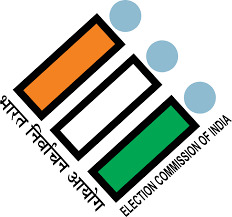
India’s national election will take place in phases over 44 days. Here’s why it takes so long
Nearly 970 million people or over 10% of the global population are eligible to vote in India’s general elections. The mammoth exercise is the biggest anywhere in the world and will take 44 days before results are announced on June 4.
Prime Minister Narendra Modi is aiming for a third consecutive term in office. He is set to compete against a diverse yet faltering coalition of opposition parties who are finding it difficult to counter his popularity. The majority of polls forecast a comfortable victory for the nationalist Bharatiya Janata Party, solidifying his position as one of the most prominent and influential leaders in the country.
WHY DOES IT TAKE SO LONG?
Two primary factors contribute to this situation: the vast expanse of India, the most populous nation globally, and the intricate logistics required to enable each eligible voter to participate in the electoral process.
Over the years, the duration of voting has wavered. It took nearly four months to complete the vote in India’s first elections in 1951-1952, after it gained independence from British rule, and just four days in 1980. In 2019, voting took 39 days, and this year’s election is the second longest.
With 969 million registered voters, the size of India’s electorate is bigger than the combined population of the 27 European Union member states. This includes 18 million first-time voters, and around 197 million who are in their 20s.
The vote to choose 543 lawmakers for the lower house of Parliament takes place over seven phases. India’s 28 states and eight federal territories will vote at different times. Each phase is one day, with the first held on April 19 and the last on June 1.
Some states may complete their voting process within a day, while others might require more time. For instance, Uttar Pradesh, the largest state in India with a population of 200 million, equivalent to the size of Brazil, will conduct voting over seven days. This extended duration of the voting process in India's general elections has been criticized by Modi's opponents, who argue that it provides an advantage to the prime minister in terms of campaigning and travel, particularly in states where his party is not as strong.
EVERY VOTE COUNTS
The Election Commission of India is responsible for ensuring that a voting booth is accessible within a 2-kilometer radius of each voter. Chakshu Roy from PRS Legislative Research emphasized the extensive efforts election officials must undertake to enable every voter to cast their ballot. Around 15 million election officials and security personnel will travel across deserts and mountains, utilizing various modes of transportation such as boats, walking, and even horseback riding, to reach all voters.
It can be especially arduous. In 2019, when India last held elections, a team of polling officers trekked over 480 kilometers (300 miles) for four days just so a single voter in a hamlet in the remote state of Arunachal Pradesh, which borders China, could exercise their right.
Officials also traveled to a village tucked away high up in the Himalayas in 2019 to install a booth at 15,256 feet (4,650 meters), the highest polling station anywhere in the world.
This time too, polling stations will be installed in remote places, including one inside a wildlife sanctuary in southern Kerala state and another in a shipping container in western Gujarat state.
TIGHT SECURITY
Security is cited as a significant factor behind the multi-phase elections in India, according to experts. In order to ensure safety, a large number of federal security forces, who typically guard borders, are mobilized and work in conjunction with state police. Their primary responsibilities include preventing violence, escorting electoral officials, and transporting voting machines. Previous elections in India have been marred by deadly clashes between supporters of rival political parties, particularly in West Bengal. However, the presence of heavy security forces has contributed to a decrease in such incidents over the years, resulting in relatively peaceful voting. The geographical diversity of the country, with its rivers, mountains, snow, and jungles, poses challenges for the movements of security forces. Despite these obstacles, the chief election commissioner, Rajiv Kumar, has emphasized their commitment to ensuring a smooth voting process by going the extra mile for the convenience of voters.
2 notes
·
View notes